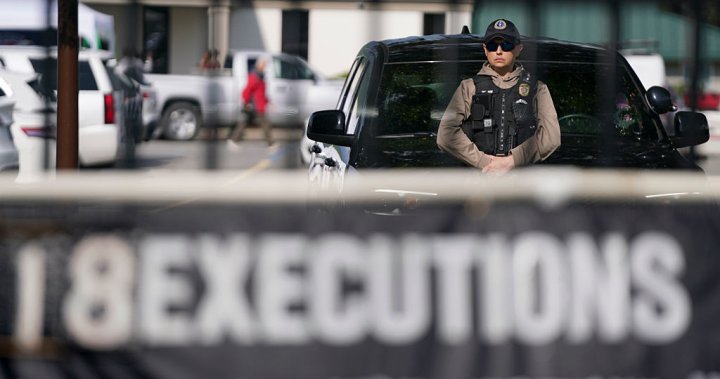Mikal Deen Mahdi, 42, was executed by firing squad on April 11, 2025, at the Broad River Correctional Institution in South Carolina. This execution marked the second use of the firing squad in the state’s history and the fifth in the United States since 1976. Mahdi was convicted of multiple murders across South Carolina and North Carolina, with the method and circumstances of his execution drawing significant attention and criticism. Despite appeals for clemency, the execution proceeded amid ongoing debate over the use of firing squads in capital punishment.
Background of the Conviction
Mikal Deen Mahdi was convicted for a series of murders committed in both South Carolina and North Carolina. The case involved multiple victims, and the prosecution presented extensive evidence linking Mahdi to the crimes. His convictions spanned several jurisdictions, contributing to the complexity of the legal proceedings. Over the years, Mahdi’s trial and sentencing have been the subject of numerous appeals, which were ultimately unsuccessful.
Details of the Execution
The execution took place on April 11, 2025, at the Broad River Correctional Institution in South Carolina. Authorities opted to carry out the sentence by firing squad, a method rarely used in the United States. Mahdi’s execution was only the second instance in South Carolina since the death penalty was reinstated in 1976, and the fifth nationwide by firing squad over the same period. The choice of this method was reportedly due to difficulties and controversies surrounding lethal injection protocols.
Controversy and Public Reaction
The use of the firing squad as a method of execution has generated significant debate among legal experts, human rights organizations, and the public. Critics argue that it constitutes cruel and unusual punishment, while proponents claim it is a more reliable and humane alternative to lethal injection. Human rights advocates have called for the abolition of capital punishment altogether, highlighting issues of morality, judicial errors, and racial disparities in sentencing.
Legal Appeals and Clemency Requests
Prior to the execution, Mahdi and his legal team filed multiple appeals seeking to overturn his death sentence or alter the execution method. Requests for clemency were also submitted to the South Carolina governor, emphasizing concerns about the fairness of the trial and the ethical implications of firing squad executions. Despite these efforts, the clemency petitions were denied, and the state proceeded with the scheduled execution.
Significance of the Execution
- Second firing squad execution in South Carolina since 1976
- Fifth firing squad execution in the United States post-1976
- Highlights ongoing challenges in capital punishment methods
- Reflects the continuing debate over the ethics and legality of the death penalty
This execution has renewed national conversations regarding the future of capital punishment in the United States and the appropriateness of execution methods currently in use. Legal scholars and policymakers are expected to revisit these issues in the coming months as additional states consider their death penalty protocols.
The execution of Mikal Deen Mahdi by firing squad underscores the complex and contentious nature of capital punishment in the United States. As only the second such execution in South Carolina since 1976 and the fifth nationwide, it has reignited debates about the ethical, legal, and practical aspects of execution methods. Despite extensive legal challenges and clemency efforts, the state’s decision highlights ongoing difficulties in implementing death penalty protocols, particularly amid concerns over fairness and humanity. This case serves as a catalyst for renewed scrutiny and discussion among lawmakers, legal experts, and the public about the future role of capital punishment and the methods employed in carrying it out.

